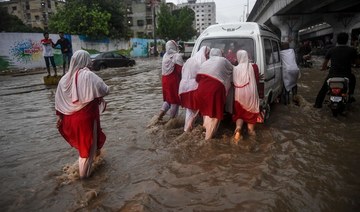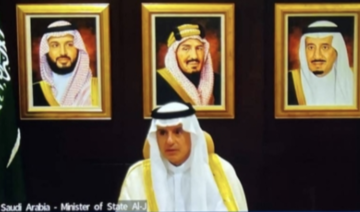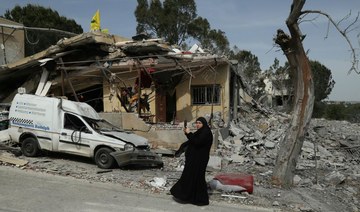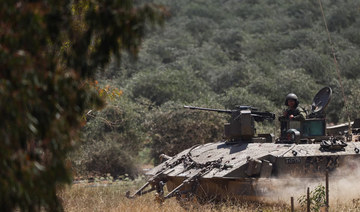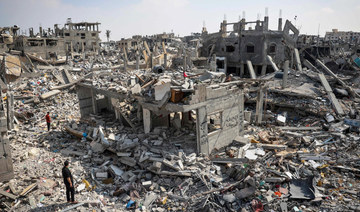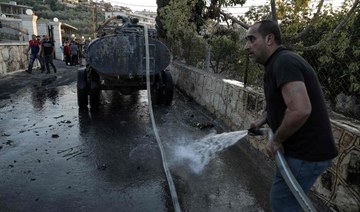CAIRO — Temperatures in the Middle East have risen far faster than the world’s average in the past three decades. Precipitation has been decreasing, and experts predict droughts will come with greater frequency and severity.
The Middle East is one of the most vulnerable regions in the world to the impact of climate change — and already the effects are being seen.
In Iraq, intensified sandstorms have repeatedly smothered cities this year, shutting down commerce and sending thousands to hospitals. Rising soil salinity in Egypt’s Nile Delta is eating away at crucial farmland. In Afghanistan, drought has helped fuel the migration of young people from their villages, searching for jobs. In recent weeks, temperatures in some parts of the region have topped 50 degrees Celsius (122 Fahrenheit).
This year’s annual UN climate change conference, known as COP27, is being held in Egypt in November, throwing a spotlight on the region. Governments across the Middle East have awakened to the dangers of climate change, particularly to the damage it is already inflicting on their economies.
“We’re literally seeing the effects right in front of us. ... These impacts are not something that will hit us nine or 10 years down the line,” said Lama El Hatow, an environmental climate change consultant who has worked with the World Bank and specializes on the Middle East and North Africa.
“More and more states are starting to understand that it’s necessary” to act, she said.
Egypt, Morocco and other countries in the region have been stepping up initiatives for clean energy. But a top priority for them at COP-27 is to push for more international funding to help them deal with the dangers they are already facing from climate change.
One reason for the Middle East’s vulnerability is that there is simply no margin to cushion the blow on millions of people as the rise in temperatures accelerates: The region already has high temperatures and limited water resources even in normal circumstances.
Middle East governments also have a limited ability to adapt, the International Monetary Fund noted in a report earlier this year. Economies and infrastructure are weak, and regulations are often unenforced. Poverty is widespread, making job creation a priority over climate protection. Autocratic governments like Egypt’s severely restrict civil society, hampering an important tool in engaging the public on environmental and climate issues.
At the same time, developing nations are pressuring countries in the Mideast and elsewhere to make emissions cuts, even as they themselves backslide on promises.
The threats are dire.
As the region grows hotter and drier, the United Nations has warned that the Mideast’s crop production could drop 30 percent by 2025. The region is expected to lose 6 percent-14 percent of its GDP by 2050 because of water scarcity, according to the World Bank.
In Egypt, precipitation has fallen 22 percent in the past 30 years, according to the World Bank.
Droughts are expected to become more frequent and severe. The Eastern Mediterranean recently saw its worst drought in 900 years, according to NASA, a heavy blow to countries like Syria and Lebanon where agriculture relies on rainfall. Demand for water in Jordan and the Arabian Gulf countries is putting unsustainable pressure on underground water aquifers. In Iraq, the increased aridity has caused an increase in sandstorms.
At the same time, warming waters and air make extreme and often destructive weather events more frequent, like deadly floods that have repeatedly hit Sudan and Afghanistan.
The climate damage has potentially dangerous social repercussions.
Many of those who lose the livelihoods they once made in agriculture or tourism will move to the cities in search of jobs, said Karim Elgendy, an associate fellow at Chatham House. That will likely increase urban unemployment, strain social services and could raise social tensions and affect security, said Elgendy, who is also a non-resident scholar with the Middle East Institute.
Adapting infrastructure and economies to weather the damage will be enormously expensive: the equivalent of 3.3 percent of the region’s GDP every year for the next 10 years, the IMF estimates. The spending needs to go toward everything from creating more efficient water use systems and new agricultural methods to building coastal protections, beefing up social safety nets and improving awareness campaigns.
So one of top priorities for Mideast and other developing nations at this year’s COP is to press the United States, Europe and other wealthier nations to follow through on long-time promises to provide them with billions in climate financing.
So far, developed nations have fallen short on those promises. Also, most of the money they have provided has gone to helping poorer countries pay for reducing greenhouse gas emissions — for “mitigation,” in UN terminology, as opposed to “adaptation.”
For this year’s COP, the top theme repeated by UN officials, the Egyptian hosts and climate activists is the implementation of commitments. The gathering aims to push countries to spell out how they will reach promised emission reduction targets — and to come up with even deeper cuts, since experts say the targets as they are now will still lead to disastrous levels of warming.
Developing nations will also want richer countries to show how they will carry out a promise from the last COP to provide $500 billion in climate financing over the next five years — and to ensure at least half that funding is for adaptation, not mitigation.
World events, however, threaten to undercut the momentum from COP26. On emissions cuts, the spike in world energy prices and the war in Ukraine have prompted some European countries to turn back to coal for power generation — though they insist it’s only a temporary step. The Middle East also has several countries whose economies rely on their fossil fuel resources — Saudi Arabia and the Arabian Gulf most obviously, but also Egypt, with its increasing natural gas production.
Persistent inflation and the possibility of recession could make top nations hesitant on making climate financing commitments.
With international officials often emphasizing emission reduction, El Hatow said it should be remembered the countries of Africa, the Middle East and elsewhere in the developing world have not contributed substantially to climate change, yet are bearing the brunt of it.
“We need to talk about financing for adaptation,” she said, “to adapt to a problem they did not cause.”
Middle Eastern nations wake up to damage from climate change
https://arab.news/gyc63
Middle Eastern nations wake up to damage from climate change
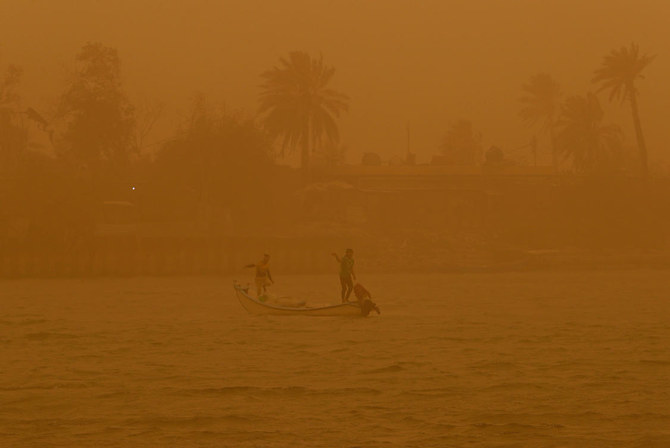
- In Iraq, intensified sandstorms have repeatedly smothered cities this year
- Rising soil salinity in Egypt’s Nile Delta is eating away at crucial farmland
France’s foreign minister looks to prevent Israel-Hezbollah conflict escalation in Lebanon visit
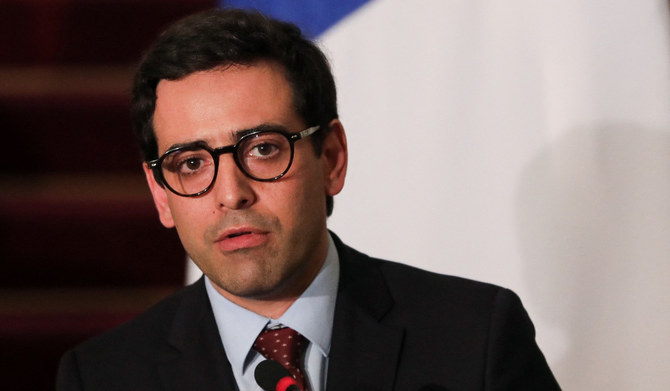
- Israel has killed more than 34,000 Palestinians, according to Gaza’s Health Ministry
- Israel has remained cautious on the French initiative, although Israeli and French officials say Israel supports efforts to defuse the cross-border tensions
BEIRUT: France’s foreign minister will push proposals to prevent further escalation and a potential war between Israel and Iran-backed Hezbollah during a visit to Lebanon on Sunday as Paris seeks to refine a roadmap that both sides could accept to ease tensions.
France has historical ties with Lebanon and earlier this year Stephane Sejourne delivered an initiative that proposed Hezbollah’s elite unit pull back 10 km (6 miles) from the Israeli border, while Israel would halt strikes in southern Lebanon.
The two have exchanged tit for tat strikes in recent months, but the exchanges have increased since Iran launched a barrage of missiles on Israel in response to a suspected Israeli attack on the Iranian embassy in the Syrian capital Damascus that killed members of Iran’s Revolutionary Guards Corps’ overseas Quds Force.
France’s proposal, which has been discussed with partners, notably the United States, has not moved forward, but Paris wants to keep momentum in talks and underscore to Lebanese officials that Israeli threats of a military operation in southern Lebanon should be taken seriously.
Hezbollah has maintained it will not enter any concrete discussion until there is a ceasefire in Gaza, where the war between Israel and Islamist militant group Hamas has entered its sixth month.
Israel has also said it wants to ensure calm is restored on its northern border so that thousands of displaced Israelis can return to the area without fear of rocket attacks from across the border.
“The objective is to prevent a regional conflagration and avoid that the situation deteriorates even more on the border between Israel and Lebanon,” foreign ministry deputy spokesperson Christophe Lemoine said at a news conference.
Lebanese Prime Minister Najib Nikati and Lebanese army chief Joseph Aoun met French President Emmanuel Macron earlier this month, where they discussed the French proposal.
In a letter addressed to the French embassy in Beirut in March, Lebanon’s foreign ministry said Beirut believed the French initiative would be a significant step toward peace and security in Lebanon and the broader region.
Local Lebanese media had reported the government had provided feedback to the French on the proposal.
French officials say the responses so far have been general and lack consensus among the Lebanese. While they deem it too early for any form of accord, they believe it is vital to engage now so that when the moment comes both sides are ready.
Paris will also underline the urgency of breaking the political deadlock in the country. Lebanon has neither a head of state nor a fully empowered cabinet since Michel Aoun’s term as president ended in October 2022.
Israel has remained cautious on the French initiative, although Israeli and French officials say Israel supports efforts to defuse the cross-border tensions.
“The flames will flicker and tensions will continue,” said a Lebanese diplomat. “We are in a situation of strategic ambiguity on both sides.”
France has 700 troops based in southern Lebanon as part of the 10,000-strong United Nations peacekeeping force.
Officials say the UN troops are unable to carry out their mandate and part of France’s proposals are aimed at beefing up the mission by strengthening the Lebanese army.
After Lebanon, Sejourne will head to Saudi Arabia before traveling to Israel.
Arab and Western foreign ministers, including US Secretary of State Antony Blinken, will hold informal talks on the sidelines of a World Economic Forum event in Riyadh to discuss the Gaza war with Palestinian President Mahmoud Abbas.
32 more killed in Gaza as Hamas studies new Israeli truce proposal
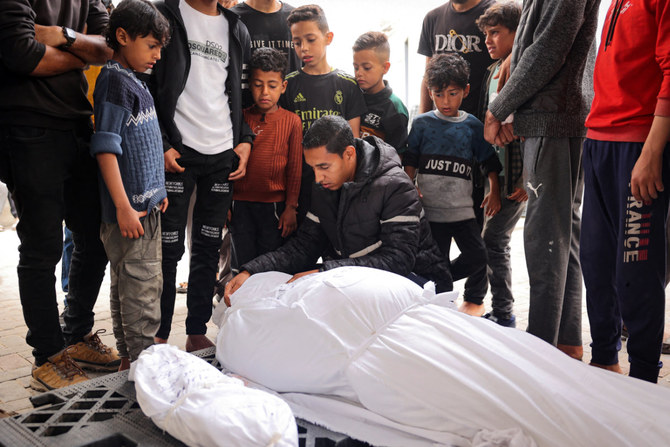
- Mediators working on compromise that will answer most of main demands
- Minister says Israel a deal could lead to suspension of planned Rafah offensive
JEDDAH/GAZA STRIP: Palestinians in Rafah said on Saturday they were living in “constant terror” as Israel vows to push ahead with its planned assault on the south Gaza city flooded with displaced civilians.
The Israeli military has massed dozens of tanks and armored vehicles in southern Israel close to Rafah and hit locations in the city in near-daily airstrikes.
“We live in constant terror and fear of repeated displacement and invasion,” said Nidaa Safi, 30, who fled Israeli strikes in the north and came to Rafah with her husband and children.
Gaza’s Health Ministry said at least 34,388 people have been killed in the besieged territory during more than six months of war between Israel and Hamas militants.
The tally includes at least 32 deaths in the past 24 hours, a ministry statement said, adding that 77,437 people have been wounded in the Gaza Strip since the war broke out when Hamas militants attacked Israel on Oct. 7.
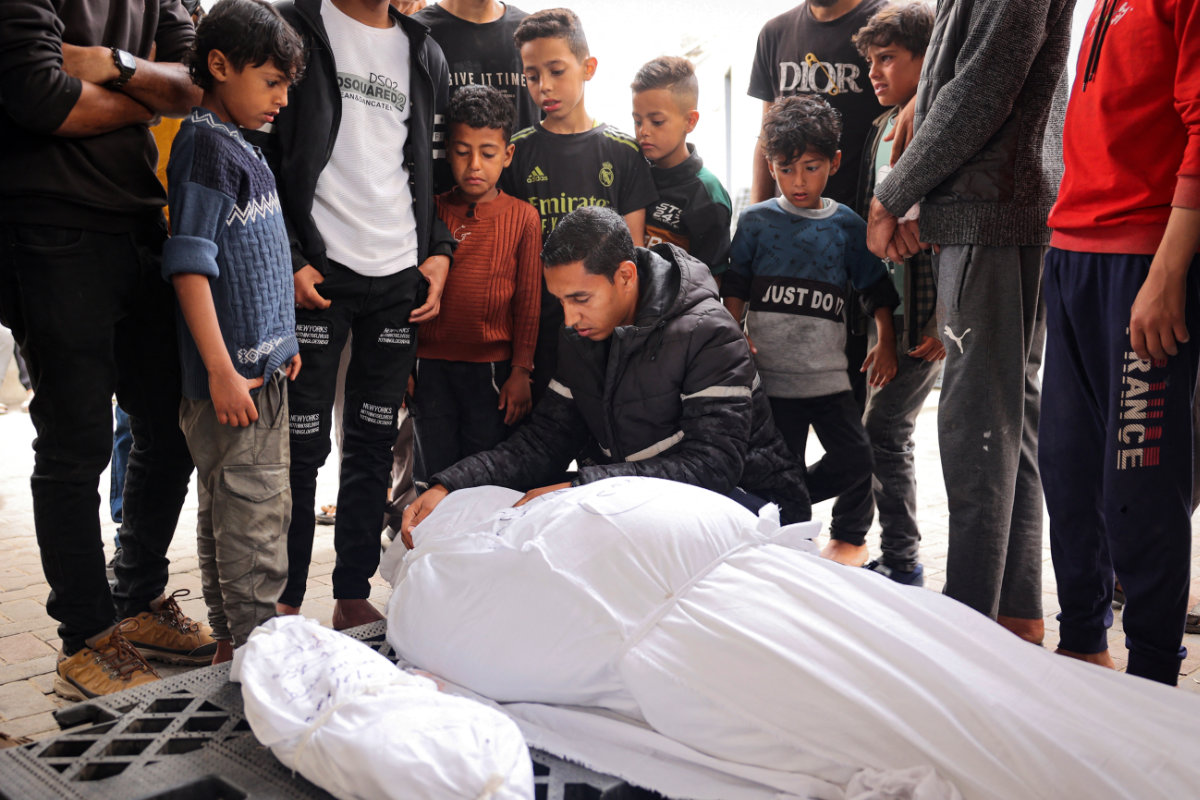
Early Saturday, an airstrike hit a house in Rafah’s Tel Sultan neighborhood, killing a man, his wife and their sons, ages 12, 10 and 8, according to records of the Abu Yousef Al-Najjar hospital’s morgue. A neighbor’s 4-month-old girl was also killed.
Ahmed Omar rushed with other neighbors after the 1:30 a.m. strike to look for survivors, but said they only found bodies and body parts. “It’s a tragedy,” he said.
An Israeli airstrike later Saturday on a building in Rafah killed seven people, including six members of the Ashour family, according to the morgue.
Five people were killed in the Nuseirat refugee camp in central Gaza overnight when an Israeli strike hit a house, according to officials at the Al-Aqsa Martyrs Hospital.
Elsewhere, Israeli forces shot and killed two Palestinian men at a checkpoint in the Israeli-occupied West Bank, the military said. It said the men had opened fire at troops stationed at Salem checkpoint near the city of Jenin.
Violence in the West Bank has flared since the war. The Ramallah-based Health Ministry says 491 Palestinians have been killed by Israeli fire.
Israel's counterproposal
Hamas said it was studying Israel’s latest counterproposal for a ceasefire, a day after reports said a delegation from mediator Egypt was in Israel trying to jump-start stalled negotiations.
Israel’s foreign minister said that the Rafah incursion could be suspended should there be a deal to secure the release of Israeli hostages.

“The release of the hostages is the top priority for us,” said Israel Katz. “If there will be a deal, we will suspend the operation.”
The Egyptian delegation discussed a “new vision” for a prolonged ceasefire in Gaza, according to an Egyptian official, who spoke on condition of anonymity to freely discuss the developments.
It wasn’t immediately clear whether Israel’s proposal was directly related to the visit.
Khalil Al-Hayya, deputy head of Hamas’s political arm in Gaza, said it had “received the official Zionist occupation response to the movement’s position, which was delivered to the Egyptian and Qatari mediators on April 13.”
Negotiations earlier this month centered on a six-week ceasefire proposal and the release of 40 civilian and sick hostages in exchange for freeing hundreds of Palestinian prisoners in Israeli jails.
A separate Hamas statement said leaders from the three main militant groups active in Gaza discussed attempts to end the war. It didn’t mention the Israeli proposal.
The armed wing of Hamas also released video footage of two men held hostage in Gaza, identified by Israeli campaign group the Hostages and Missing Families Forum as Keith Siegel and Omri Miran.
Mediators are working on a compromise that will answer most of both parties’ main demands, which could pave the way to continued negotiations with the goal of a deal to end the war, the official said.
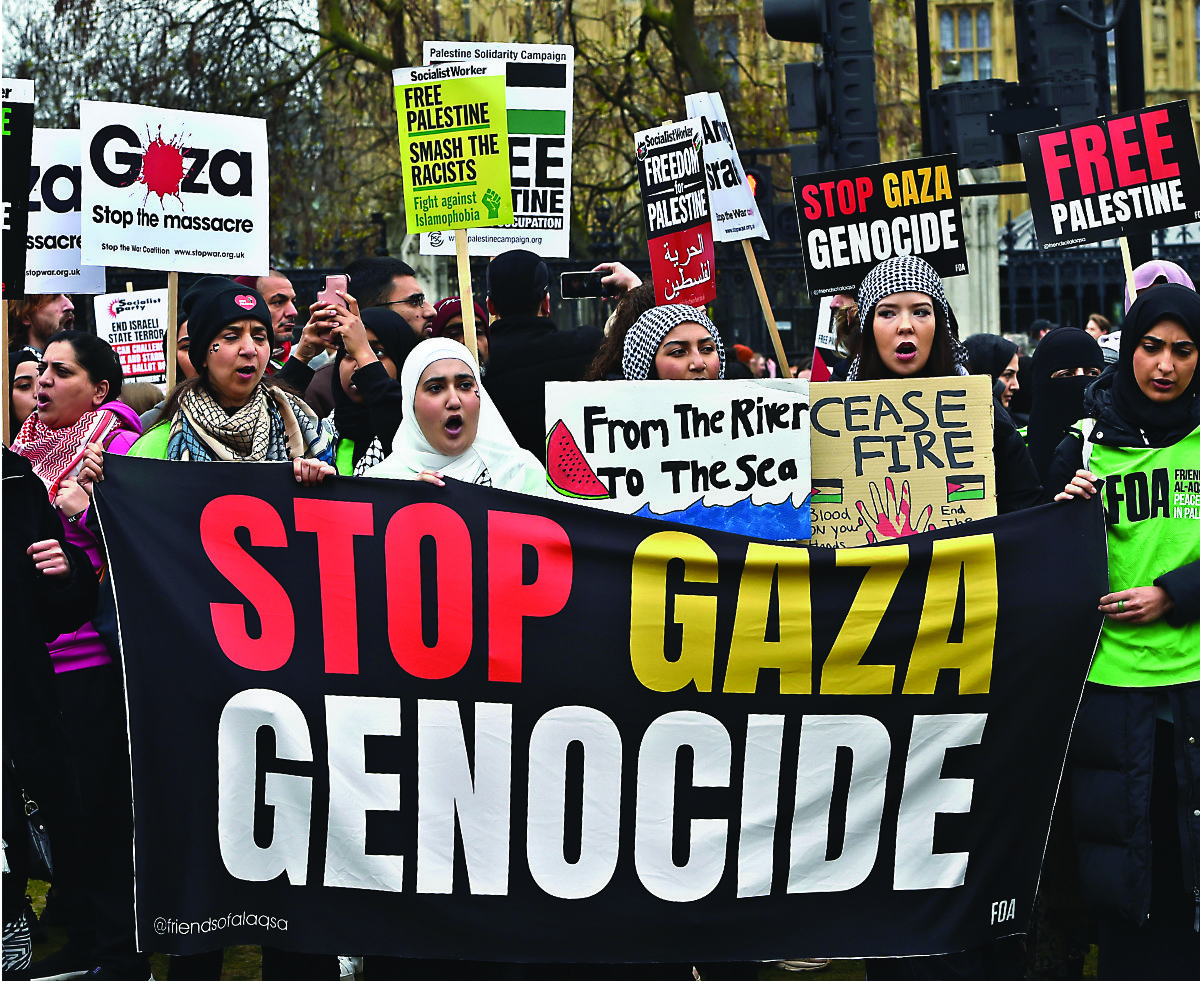
Hamas has said it won’t back down from demands for a permanent ceasefire and full withdrawal of Israeli troops.
Israel has rejected both and said it will continue military operations until Hamas is defeated and that it will retain a security presence in Gaza.
There is growing international pressure for Hamas and Israel to reach a ceasefire deal and avert an Israeli attack on Rafah, where more than half of Gaza’s 2.3 million people have sought refuge.
Israel has insisted for months it plans a ground offensive into Rafah, on the border with Egypt, where it says many remaining Hamas militants remain, despite calls for restraint including from Israel’s staunchest ally, the United States.
Egypt has cautioned an offensive into Rafah could have “catastrophic consequences” on the humanitarian situation in Gaza, where famine is feared, and on regional peace and security.
Tolerating Israeli abuses
Washington has been critical of Israeli policies in the West Bank. US Secretary of State Antony Blinken, who is expected in Israel on Tuesday, recently determined an army unit committed rights abuses there before the war in Gaza.
But Blinken said in an undated letter to US House Speaker Mike Johnson, obtained by The Associated Press on Friday, that he’s postponing a decision on blocking aid to the unit to give Israel more time to right the wrongdoing. Blinken stressed that overall US military support for Israel’s defense wouldn’t be affected.
The US has also been building a pier to deliver aid to Gaza through a new port. Israel’s military confirmed Saturday that it would be operational by early May.
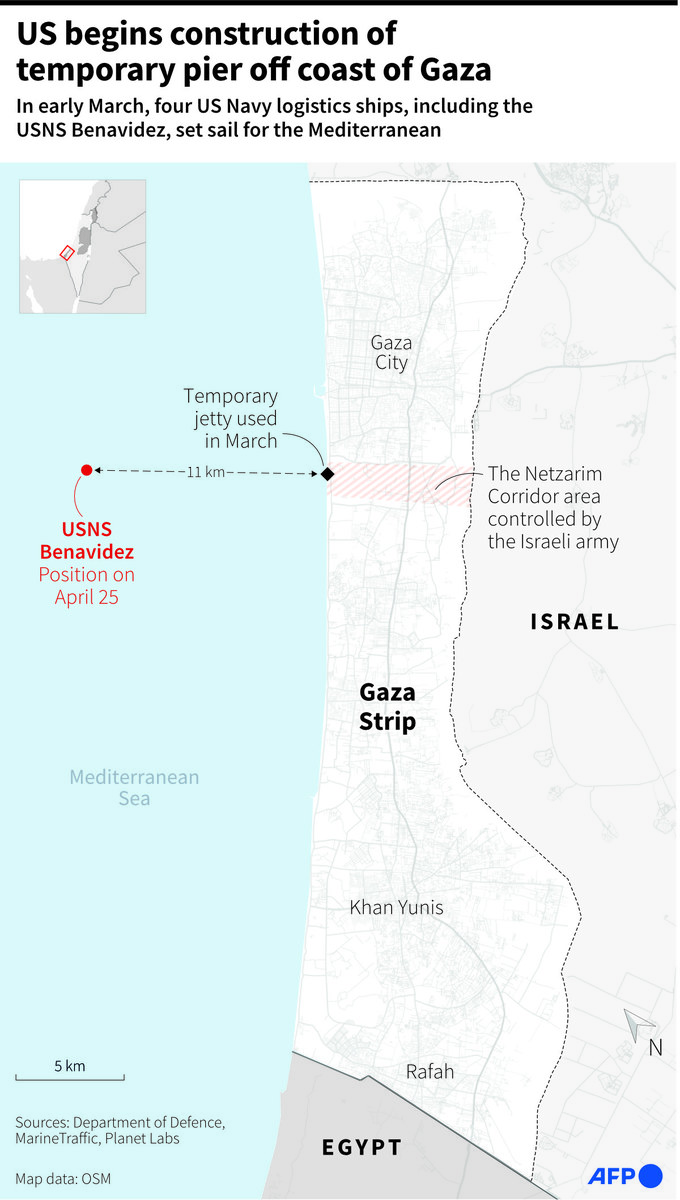
The BBC reported the UK government was considering deploying troops to drive the trucks to carry the aid to shore, citing unidentified government sources. British officials declined to comment.
Another aid effort, a three-ship flotilla coming from Turkiye, was prevented from sailing, organizers said.
Student protests over the war and its effect on Palestinians are growing on college campuses in the US, while demonstrations continue in many countries.
Hamas sparked the war by attacking southern Israel on Oct. 7, with militants killing around 1,200 people, mostly civilians, and taking around 250 hostage. Israel says the militants still hold around 100 hostages and the remains of more than 30 others.
Sudan demands emergency UN meeting on UAE ‘aggression’
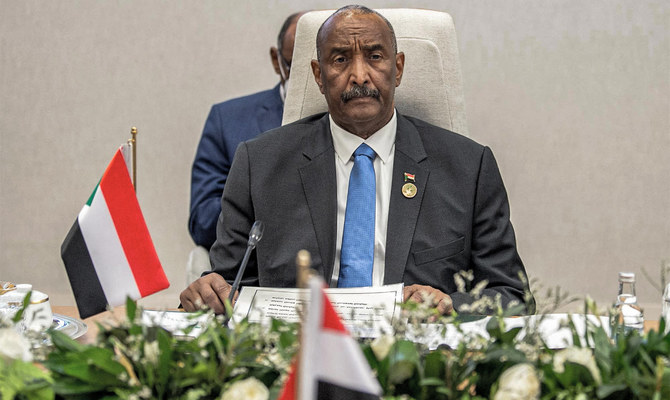
- For months the regular army has accused the United Arab Emirates of supporting the RSF, a charge the UAE denies
PORT SUDAN, Sudan: Sudan has requested an emergency UN Security Council meeting on what it calls UAE “aggression” for allegedly supporting paramilitaries battling the army, a diplomatic source said Saturday.
The fighting broke out in April last year between the regular army, headed by Sudan’s de facto leader Abdel Fattah Al-Burhan, and the paramilitary Rapid Support Forces (RSF) led by his former deputy Mohamed Hamdan Dagalo.
For months the regular army has accused the United Arab Emirates of supporting the RSF, a charge the UAE denies.
“Yesterday, our permanent representative to the United Nations submitted a request for an urgent session of the Security Council to discuss the UAE’s aggression against the Sudanese people, and the provision of weapons and equipment to the terrorist militia,” the source told AFP.
The country’s official SUNA news agency confirmed that Sudan’s UN representative, Al-Harith Idriss, had submitted the request.
SUNA cited Idriss as saying this was “in response to the UAE representative’s memorandum to the Council,” and that “the UAE’s support for the criminal Rapid Support militia that waged war on the state makes the UAE an accomplice in all its crimes.”
In a letter to the Security Council last week, the UAE foreign ministry rejected Sudan’s accusations that it backs the RSF.
The letter said the allegations were “spurious (and) unfounded, and lack any credible evidence to support them.”
Separately on Saturday, the UN Security Council expressed “deep concern” over escalating fighting in Sudan’s North Darfur region and warned against the possibility of an imminent offensive by the RSF and allied militias on El Fasher.
The city is the last Darfur state capital not under RSF control and hosts a large number of refugees.
United Nations officials put out similar warnings Friday, with the UN’s High Commissioner for Human Rights Volker Turk expressing his “grave concern.”
Secretary-General Antonio Guterres’ spokesperson’s office said an attack on El Fasher “would have devastating consequences for the civilian population... in an area already on the brink of famine.”
The Sudan war has killed tens of thousands of people and forced more than 8.5 million people to flee their homes in what the United Nations has called the “largest displacement crisis in the world.”
In December, Khartoum demanded that 15 Emirati diplomats leave the country after an army commander accused Abu Dhabi of supporting the RSF, and protests in Port Sudan demanded the expulsion of the UAE ambassador.
The Wall Street Journal, citing Ugandan officials, reported last August that weapons had been found in a UAE cargo plane transporting humanitarian aid to Sudanese refugees in Chad, prompting a denial from Abu Dhabi.
Hezbollah says fires drones and guided missiles at Israel
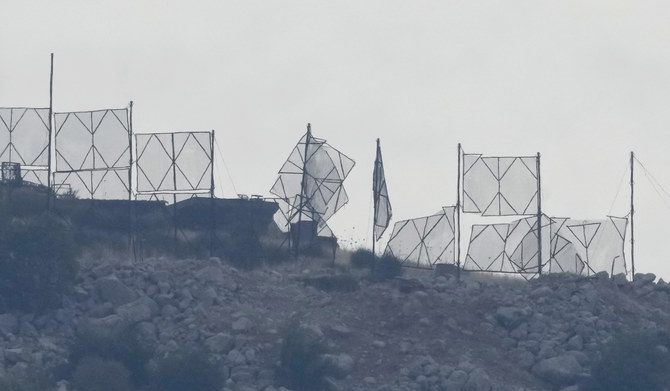
- The border between Lebanon and Israel has seen near-daily exchanges of fire since the Israel-Hamas war in Gaza began nearly seven months ago
BEIRUT: Lebanon’s Iran-backed Hezbollah movement said Saturday it had targeted northern Israel with drones and guided missiles after cross-border Israeli strikes killed three people, including two of its members.
A statement from the group said it “launched a complex attack using explosive drones and guided missiles on the headquarters of the Al Manara military command and a gathering of forces from the 51st Battalion of the Golani Brigade.”
The Israeli army said its Iron Dome air-defense system “successfully intercepted a suspicious aerial target that crossed from Lebanon into the area of Manara in northern Israel.”
The army also “struck the sources of fire” of several anti-tank missiles launched from Lebanon into the Manara border area, it added.
Lebanon’s National News Agency later reported that an Israeli air strike on a house in Srebbine village had wounded 11 people, one seriously.
Earlier Saturday, Israeli fighter jets “struck a Hezbollah military structure in the area of Qouzah in southern Lebanon,” the army said in a statement.
The border between Lebanon and Israel has seen near-daily exchanges of fire since the Israel-Hamas war in Gaza began nearly seven months ago.
In two separate statements earlier Saturday, Hezbollah mourned the deaths of two fighters from the villages of Kafr Kila and Khiam.
It said they had been “martyred on the road to Jerusalem,” the phrase it uses to refer to members killed by Israeli fire.
Hezbollah has intensified its targeting of military sites in Israel since tensions soared between Israel and Iran over the bombing of Tehran’s Damascus consulate on April 1, widely blamed on Israel.
Iran to release crew members of seized Portugal-flagged ship
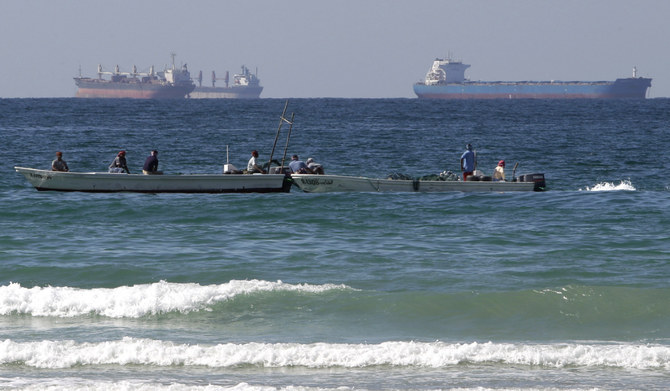
- The ship’s seizure took place hours before Iran carried out its first-ever direct attack on Israel, launching hundreds of drones and missiles
TEHRAN: Iran said on Saturday it would release the crew members of a Portuguese-flagged ship that its forces seized this month in the Gulf.
The Revolutionary Guard Corps took over the MSC Aries with 25 crew members on board near the Strait of Hormuz on April 13.
Tehran later said the ship belonged to its Israel and was being investigated for alleged violations of international maritime law.
“The humanitarian issue of the release of the ship’s crew is of great concern to us,” Iran’s Foreign Minister Hossein Amir-Abdollahian said in a phone call with his Portuguese counterpart Paulo Rangel.
BACKGROUND
The ship’s seizure took place hours before Iran carried out its first-ever direct attack on Israel, launching hundreds of drones and missiles.
“We have given consular access to their ambassadors in Tehran and announced to the envoys that the crew members will be released and extradited,” he was quoted as saying in a statement from his ministry, without elaborating.
Following the ship’s seizure, Portugal summoned Iran’s ambassador to demand its immediate release.
On April 18, India said one of the 17 Indian crew members had returned home and that the others were granted consular access.
“They are in good health and not facing any problems on the ship. As for their return, some technicalities are involved,” an Indian Foreign Ministry spokesman said on Thursday.
The ship’s seizure took place hours before Iran carried out its first-ever direct attack on Israel, launching hundreds of drones and missiles.
The Israeli military said nearly all of the projectiles were intercepted.
Israel and the US have denounced the seizure of the ship as an act of “piracy.”
Regional tensions have soared since war broke out nearly seven months ago between Israel and Palestinian militant group Hamas in the Gaza Strip.



